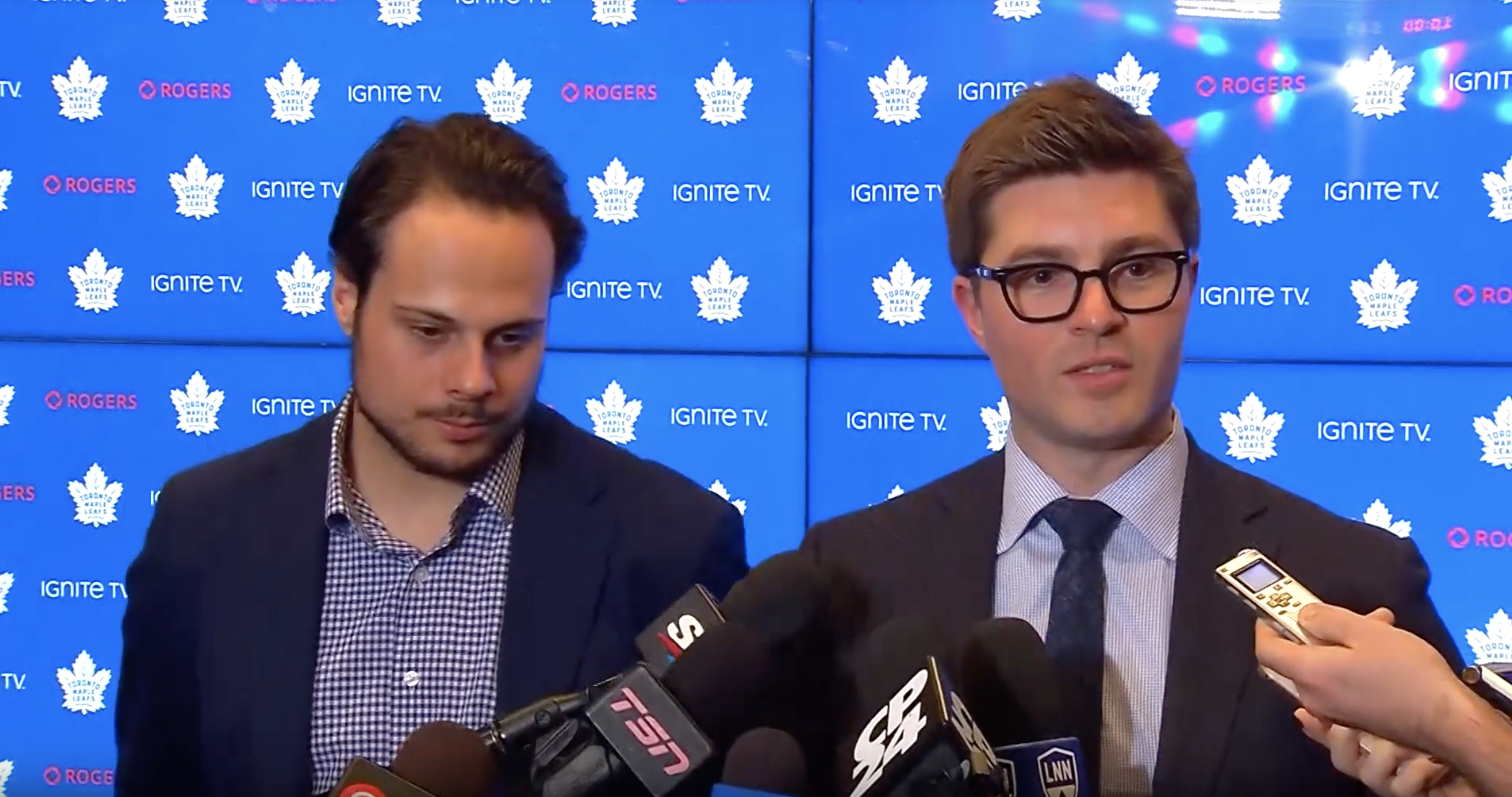After the Toronto Maple Leafs’ win over the Montreal Canadiens on Wednesday night, GM Kyle Dubas discussed the organization’s response to the disorderly-conduct complaint against Auston Matthews.
How does this organization come together in correcting a situation that Auston just admitted was an error in judgment on his part?
Dubas: As we go through it, I think you always wish that whenever you go through it, whenever you’re a part of any organization — athletics or otherwise — that there is never going to be any issue; there are never going to be any errors in judgment, there is never going to be any distractions. Unfortunately, there often are. Whether it’s us, different organizations, businesses — wherever that may be. We obviously take the matter very seriously. We are obviously disappointed that it has been a distraction and for what it’s caused not only to the team but to everyone who is involved.
For us, the way you look at it is, 1) We have to find out what has happened and what is going on. Subsequently, we have to use it as an opportunity to continue to educate our whole organization — every player, every staff member — about the way we expect the organization to conduct its business here at the rink every day, in the weight room, in the community, and how they interact with every citizen they come into contact with. When they are doing so, they are representing the Toronto Maple Leafs.
What bothers you more? That it happened, or that you didn’t find out it happened?
Dubas: I don’t think I have them in a power ranking. Equally, probably. Number one, that there was a situation. Number two, the way in which we found out. Both are disappointing and will be addressed and we’ll roll from there. Obviously, you don’t like for there to ever be any situations, and when you do, you want to know about them as soon as possible.
I think that was just an error in judgment, to be honest with you. We received a complaint — got the legal [notice] and tried to map out a plan on how to handle the situation, and it’s just an error in judgment on my part.
– Auston Matthews on not alerting the team about the situation ahead of time
What needs to happen for your relationship with Auston after not finding out about this?
Dubas: I just think a discussion in-depth as to the way it went about. I think I’ve got a pretty good idea about that. For us, you don’t want it to come off as an excuse at all, but you often go through experiences — going back to my time in the Soo and then here — where you have moments, because the players are so prolific athletically and very unique in their field, where you forget that they’re 20-21, 18, 23 or 24. Moments like this remind you of that. They also remind you of the onus that we have as an organization to continue to develop our people in how they conduct their business off the ice. I don’t think it will negatively impact the relationship with Auston. With everything that happens, where someone doesn’t meet the level of expectation you have for them or they have for themselves, it is an opportunity for them to learn and to grow. That is how we will approach it, as with anything.
How does this impact your decision on potentially naming a captain?
Dubas: I don’t think today is the day to talk about the captaincy.
Kids make kid mistakes. Did you expect more from the agent in this case?
Dubas: I don’t know the exact details as of yet. I think Judd has been great since we learned about it in getting us information and helping us to kind of piece it all together. Of course, I would’ve liked for somebody to come forth before and let us know. I think that expectation goes to everyone involved, not one person or another — all of them, and predominantly, with all of our players, if they do have something that happens away from the rink or something at the rink that is bothering them or that goes on, we need them to be able to come to us and for us to be able to help them or provide guidance.
How did you find out?
Dubas: I found out on Twitter yesterday and then called Auston.
And how was he on that phone call?
Dubas: He was very honest about it. There was no ducking. There was no denying anything. He was very honest with me about what had happened. I would’ve liked to know before, but I am happy that, in the moment when he could’ve ducked away or deferred, that he was honest with me.

































